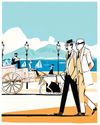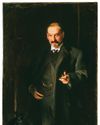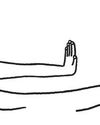
When I am stuck on something I’m trying to write and have exhausted all the other options—ignoring the problem, staring blankly at the problem, moving the problem around to see if it’s less annoying in some other location, eating all the chocolate in the house—I eventually do what I should have done in the first place and go read some writer who is much better at this business than I am. The candidates are legion. But, from the whole long, idiosyncratic list of authors I regularly turn to for intellectual and aesthetic resuscitation, one of the most consistently useful is Norman Maclean. If you know Maclean, it is likely because of his first work, “A River Runs Through It and Other Stories,” a triptych of tales—about, among other things, families, fly-fishing, love, death, and a time when virtually all hard work in this country was still done by hand—that was published to enormous acclaim and considerable astonishment when the author was seventy-three years old. For many years before that collection appeared, in 1976, Maclean had tried to write a book about the Battle of Little Bighorn. For all the years afterward, until his death, at eighty-seven, he worked on a book about a different tragedy on a hillside—a wildfire in Montana that killed twelve smoke jumpers and a forest ranger—which was published, posthumously, as “Young Men and Fire.”
This story is from the {{IssueName}} edition of {{MagazineName}}.
Start your 7-day Magzter GOLD free trial to access thousands of curated premium stories, and 9,000+ magazines and newspapers.
Already a subscriber ? Sign In
This story is from the {{IssueName}} edition of {{MagazineName}}.
Start your 7-day Magzter GOLD free trial to access thousands of curated premium stories, and 9,000+ magazines and newspapers.
Already a subscriber? Sign In

BADDIE ISSUES
\"Wicked\" and \"Gladiator II.\"

LET'S MAKE A DEAL
\"Death Becomes Her\" and \"Burnout Paradise.\"

ANTI HEROES
\"The Franchise,\" on HBO.

FELLOW-TRAVELLERS
The surprisingly sunny origins of the Frankfurt School.

NOW YOU SEE ME
John Singer Sargent's strange, slippery portraits of an art dealer's family.

PARIS FRIEND - SHUANG XUETAO
Xiaoguo had a terror of thirst, so he kept a glass of water on the table beside his hospital bed. As soon as it was empty, he asked me to refill it. I wanted to warn him that this was unhealthy - guzzling water all night long puts pressure on the kidneys, and pissing that much couldn't be good for his injury. He was tall, though, so I decided his insides could probably cope.

WILD SIDE
Is Lake Tahoe's bear boom getting out of hand?

GETTING A GRIP
Robots learn to use their hands.

WITHHOLDING SEX FROM MY WIFE
In the wake of [the] election, progressive women, who are outraged over Donald Trump's victory at the ballot box, have taken to social media with public, vengeful vows of chastity. - The Free Press.

DEADLINE EXTENSION
Old age, reborn.